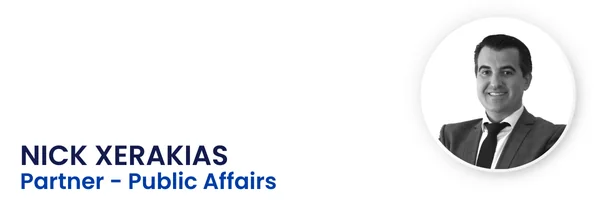Despite the long weekend, Australian politics remained anything but quiet.
Prime Minister Anthony Albanese took centre stage at the National Press Club, outlining a detailed blueprint for his government’s second term. Central to his address was a renewed focus on productivity, with Albanese announcing plans to convene a national roundtable involving business leaders and unions. The goal is to foster collaboration across sectors and drive sustainable economic growth, tackling long-standing challenges such as skills shortages and stagnant wages.
Albanese also positioned Australia as a key stabilising force amid rising global tensions. He spoke candidly against the surge of populism worldwide, defending the importance of democratic institutions and the rule of law. The Prime Minister signalled openness to increased defence spending, underscoring Australia’s commitment to regional security in a volatile Indo-Pacific environment.
On the same day, Australia aligned with allies including the UK, Canada, and New Zealand in imposing Magnitsky-style sanctions on two Israeli ministers accused of inciting violence in the West Bank – a move that sparked debate domestically and internationally, drawing criticism from US Secretary of State Marco Rubio.
Albanese’s address also sets the scene for his upcoming visit to the G7 summit in Canada, where US President Trump will also be in attendance. As the political landscape continues to evolve at home and abroad, all eyes remain on how these developments will unfold.
Stay tuned.
Top talking points
🗣️ National Press Club Address: Anthony Albanese addressed the National Press Club, highlighting Australia’s stabilising global role, balanced defence spending, and commitment to renewable energy.
🌐 Joint Sanctions: Penny Wong announced that Australia, in coordination with the UK, Canada, New Zealand, and Norway, imposed sanctions on Israeli Ministers, Itamar Ben-Gvir and Bezalel Smotrich.
📅 Sussan Ley: The Opposition Leader has committed[paywall] to addressing the National Press Club on 25 June.
🏠 Housing Reform: Clare O’Neil indicated[paywall] that overhauling state planning laws ranks high on the federal government’s housing agenda.
🔄 Departmental Changes: Steven Kennedy and Jenny Wilkinson were appointed Secretaries of the Prime Minister and Cabinet and the Treasury.
Making headlines this week
Tasmanian Election
Tasmania will hold an early state election on 19 July, following a successful no-confidence motion against Premier Jeremy Rockliff. The motion, triggered by concerns over budget issues, stalled infrastructure projects, and asset sales, passed 18–17 with Labor’s Speaker casting the deciding vote. Premier Rockliff requested, and was granted, a dissolution of Parliament by Governor Barbara Baker. This will be Tasmania’s fourth election in seven years.
NSW Deputy Premier’s Health Announcement
NSW Deputy Premier Prue Car has announced she will take personal leave after being diagnosed with early-stage breast cancer, detected during a routine screening. In Car’s absence, Courtney Houssos will serve as Acting Minister for Education and Early Learning, as well as Acting Minister for Western Sydney. Despite her leave, Car will retain her title as Deputy Premier and plans to return to her official duties once her treatment is complete and she has recovered.
Things to watch
🌍 15 June G7 Summit: Mr. Anthony Albanese will attend the 51st G7 Leaders’ Summit.
💻 16 June Digital Economy Council Forum: The Council will host a three-day forum on blockchain, digital assets and the digital economy.
📈 17 June AFR ESG Summit: The AFR will host its annual ESG Summit.
💼 17 June CEDA Sovereign Wealth: CEDA will host Future Fund Chair, Greg Combet to discuss Australia’s sovereign wealth fund.
🎤 18 June APRA Address: APRA Chair John Lonsdale will address the Business Council of Australia’s boardroom event.
⚠️ 18 June Risk Summit: The Australian Finance Industry Association will host its annual Risk Summit.
🏛️ 18 June Treasurer’s National Press Club Address: Mr. Jim Chalmers will address the National Press Club.
IPOs, Consultations and AML/CTF Reform
ASIC announced a two-year trial for entities listing on the ASX via the fast-track process. The changes aim to reduce the administrative timeline for the initial public offering process and increase deal certainty.
APRA released a consultation paper, seeking industry feedback on modifying the capital framework for annuities. The proposed changes will allow life insurers to hold less capital for annuity products if they adequately manage their risks.
AUSTRAC CEO Brendan Thomas spoke at the Integrity Insight Financial Crime Summit 2025, highlighting changes to Australia’s AML/CTF regime. From 1 July, around 80,000 new businesses will be captured under Tranche 2 reforms, with Mr. Thomas communicating the need to prepare for new compliance obligations.
AUKUS, Trade Missions, and Defence Contracts
The US Department of Defense is reviewing the AUKUS security agreement to ensure it aligns with President Donald Trump’s America-first Agenda. However, Mr. Richard Marles has downplayed the AUKUS review, describing it as standard practice. Announced in September 2021, under the AUKUS security agreement, Australia committed to acquiring nuclear-powered submarines from the US and the UK.
The Federal Government committed $50 million to create additional opportunities for local businesses to enter overseas markets. Additionally, Don Farrell announced five business and investment missions to assist in diversifying Australia’s trade relationships. The first involves Australian healthcare and Medtech companies participating in London Tech Week 2025 and NHS ConfedExpo 2025.
Japanese Mogami-class frigate arrived in Darwin as part of an Indo-Pacific tour. Ship manufacturer Mitsubishi Heavy Industries and Thyssenkrupp Marine Systems are competing to secure a $10 billion contract for 11 new vessels to replace the Royal Australian Navy’s fleet of eight Anzac-class frigates.
United Nations, Offshore Wind, and Energy Updates
Mr. Murray Watt used his address at the United Nations Oceans Conference in France to announce that 30 per cent of Australian waters will be highly protected by 2030 and reaffirmed Australia’s commitment to the High Seas Biodiversity Treaty.
The Clean Energy Council’s Winds of Opportunity Report found that $15.2 billion will be injected into the national economy following $100 billion of capital investment into offshore wind. The report also found that offshore wind is likely to require the least amount of new transmission infrastructure compared to other emerging energy sources.
The Western Australian and federal governments will expand the Household Battery Rebate Scheme, estimated to benefit over 100,000 households. Mr. Chris Bowen also announced that the New South Wales Government will join the federal government’s Cheaper Home Batteries Program, doubling incentives available for NSW households and small businesses.
The Queensland Government announced that CopperString will receive $2.4 billion in the upcoming Queensland Budget. Despite cost blowouts and prior criticisms while in Opposition, the Crisafulli Government will increase funding for the project by $1.4 billion.
Western Sydney Airport, Consultations, and Industry Standards
Major construction at Western Sydney International Airport (WSI) has concluded. The prime minister attended the terminal’s unveiling, where he announced Air New Zealand’s commitment to operate at the airport. The WSI is expected to open in 2026, following seven years of construction.
The Office of the Australian Information Commissioner (OAIC) opened phase two of consultation for the Children’s Online Privacy Code (the Code), inviting industry to respond to the OAIC’s Issues Paper. The Code aims to protect children’s personal data online, with consultations closing on 31 July.
The Australian Communications and Media Authority (ACMA) introduced a mandatory Domestic, Family and Sexual Violence (DFSV) Industry Standard to reduce barriers to call-based support pathways. ACMA’s standard will require telcos to follow a suite of rules that prioritise the safety of victim survivors.
MND, PPPs, and Education Funding Commitments
The Federal Government is providing $4.5 million to support MND research and has also listed Edaravone (Radicava®) on the PBS. Eligible patients will pay no more than $31.60 per script, or $25 from 2026. The Victorian Government has also contributed $250,000 to FightMND’s Big Freeze event.
The NSW Parliament passed the Health Services Amendment (PPP Prohibition) Bill 2025, which prohibits the New South Wales Government from entering into new public-private partnerships (PPPs) for the construction or operation of acute public hospitals. Existing PPP contracts remain unaffected.
The Western Australian Government committed to investing $1.7 billion over four years to expand public school infrastructure to meet the needs of a growing population. The investment aims to fund upgrades to existing schools and support the rollout of new air-conditioning systems.
In case you missed it...
📺 Anthony Albanese outlines his second term agenda.

